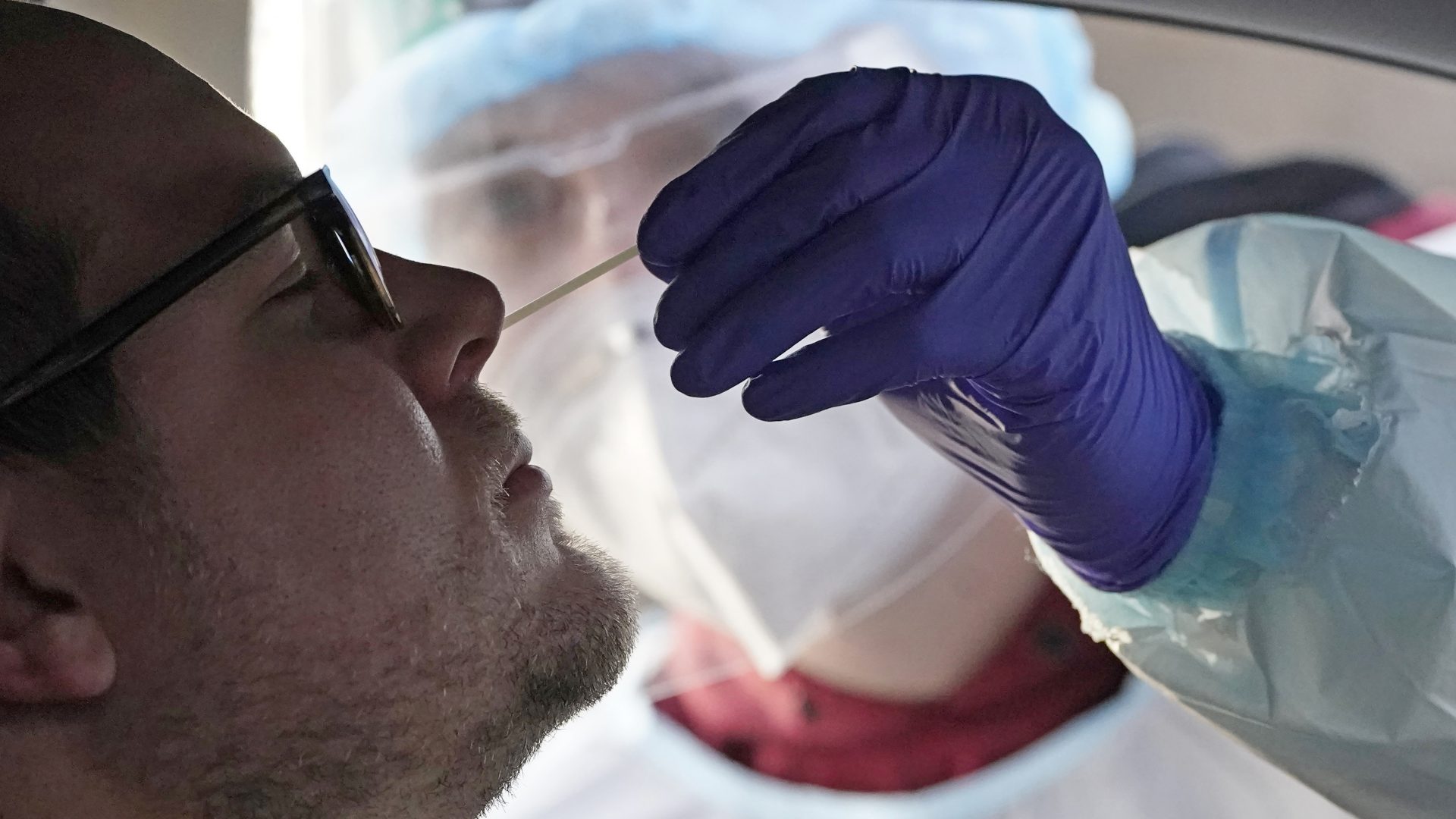President Joe Biden’s announcement he is withdrawing all U.S. troops from Afghanistan by September 11 is seen as an end to America’s longest war. But is it and will there be ramifications with no U.S. military presence in Afghanistan?
A conflict that was designed to drive out the ruling Taliban and eliminate a safe haven for the terrorists, that included those that planned and carried out the September 11, 2001 attacks in the U.S., has resulted in 2,200 Americans dead and 20,000 wounded.
Chris Mason, Ph.D., Professor of National Security Affairs, Strategic Studies Institute, U.S. Army War College in Carlisle joins us on Thursday’s Smart Talk to discuss the way forward in Afghanistan.
Reduction in COVID testing causing concern

Rick Bowmer / Associated Press
FILE PHOTO: Christian Kirkham is tested for COVID-19 on Nov. 17, 2020, in Salt Lake City.
Many infectious disease specialists and other health experts say getting 80% of the population vaccinated against COVID-19 and possibly reaching herd immunity could be the keys to ending the pandemic and returning to normal. So, it’s not a surprise that since December when the first vaccine became available, vaccinations have become the center of attention and the priority for most Americans.
Before the vaccines, testing individuals for COVID to track the virus was the most important tool available to strategize mitigations efforts and treatments.
The number of tests for COVID is down – way down in some places – and we rarely hear about testing today.
Does that mean testing isn’t useful any longer?
Appearing on Thursday’s Smart Talk to answer that questions is Jennifer Nuzzo, an epidemiologist and senior scholar at the Johns Hopkins Center for Health Security.
Podcast: Play in new window | Download
Subscribe: RSS
